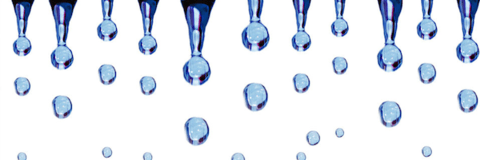Cancer Studies
Hydrogen-controlled cancer
The authors conducted a prospective follow-up study of 82 patients with stage III and IV cancer treated with hydrogen inhalation using the “real world evidence” method.
After 3-46 months of follow-up, 12 patients died in stage IV. After 4 weeks of hydrogen inhalation, patients reported significant improvements in fatigue, insomnia, anorexia and pain.
Furthermore, 41.5% of patients had improved physical status, with the best effect achieved in lung cancer patients and the poorest in patients with pancreatic and gynecologic cancers.
Of the 58 cases with one or more abnormal tumor markers elevated, the markers were decreased at 13-45 days (median 23 days) after hydrogen inhalation in 36.2%.
The greatest marker decrease was in achieved lung cancer and the lowest in pancreatic and hepatic malignancies. Of the 80 cases with tumors visible in imaging, the total disease control rate was 57.5%, with complete and partial remission appearing at 21-80 days (median 55 days) after hydrogen inhalation.
The disease control rate was significantly higher in stage III patients than in stage IV patients (83.0% and 47.7%, respectively), with the lowest disease control rate in pancreatic cancer patients. No hematological toxicity was observed although minor adverse reactions that resolved spontaneously were seen in individual cases.
In patients with advanced cancer, inhaled hydrogen can improve patients’ quality-of-life and control cancer progression. Hydrogen inhalation is a simple, low-cost treatment with few adverse reactions that warrants further investigation as a strategy for clinical rehabilitation of patients with advanced cancer.
Chen JB, Kong XF, Lv YY, et al. “Real world survey” of hydrogen-controlled cancer: a follow-up report of 82 advanced cancer patients. Med Gas Res. 2019 Jul-Sep;9(3):115-121.
Protective effect of hydrogen-rich water on liver function of colorectal cancer patients treated with chemotherapy
The present study was conducted to investigate the protective effect of hydrogen-rich water on the liver function of colorectal cancer (CRC) patients treated with mFOLFOX6 chemotherapy. A controlled, randomized, single-blind clinical trial was designed.
A total of 152 patients with CRC were recruited by the Department of Oncology of Taishan Hospital (Taian, China) between June 2010 and February 2016, among whom 146 met the inclusion criteria. Subsequently, 144 patients were randomized into the treatment (n=80) and placebo (n=64) groups. At the end of the study, 76 patients in the hydrogen treatment group and 60 patients in the placebo group were included in the final analysis.
The changes in liver function after the chemotherapy, such as altered levels of alanine aminotransferase (ALT), aspartate transaminase (AST), alkaline phosphatase, indirect bilirubin (IBIL) and direct bilirubin, were observed. The damaging effects of the mFOLFOX6 chemotherapy on liver function were mainly represented by increased ALT, AST and IBIL levels.
The hydrogen-rich water group exhibited no significant differences in liver function before and after treatment, whereas the placebo group exhibited significantly elevated levels of ALT, AST and IBIL.
Thus, hydrogen-rich water appeared to alleviate the mFOLFOX6-related liver injury.
Yang Q, Ji G, Pan R, et al. Protective effect of hydrogen-rich water on liver function of colorectal cancer patients treated with mFOLFOX6 chemotherapy. Mol Clin Oncol. 2017 Nov;7(5):891-896.
Hydrogen-rich water and quality of life in cancer patients receiving radiotherapy
Cancer patients receiving radiotherapy often experience fatigue and impaired quality of life (QOL). Many side effects of radiotherapy are believed to be associated with increased oxidative stress and inflammation due to the generation of reactive oxygen species during radiotherapy.
Hydrogen can be administered as a therapeutic medical gas, has antioxidant properties, and reduces inflammation in tissues. This study examined whether hydrogen treatment, in the form of hydrogen-supplemented water, improved QOL in patients receiving radiotherapy.
A randomized, placebo-controlled study was performed to evaluate the effects of drinking hydrogen-rich water on 49 patients receiving radiotherapy for malignant liver tumors. Hydrogen-rich water was produced by placing a metallic magnesium stick into drinking water (final hydrogen concentration; 0.55~0.65 mM).
The Korean version of the European Organization for Research and Treatment of Cancer’s QLQ-C30 instrument was used to evaluate global health status and QOL. The concentration of derivatives of reactive oxidative metabolites and biological antioxidant power in the peripheral blood were assessed.
The consumption of hydrogen-rich water for 6 weeks reduced reactive oxygen metabolites in the blood and maintained blood oxidation potential. QOL scores during radiotherapy were significantly improved in patients treated with hydrogen-rich water compared to patients receiving placebo water. There was no difference in tumor response to radiotherapy between the two groups.
Daily consumption of hydrogen-rich water is a potentially novel, therapeutic strategy for improving QOL after radiation exposure. Consumption of hydrogen-rich water reduces the biological reaction to radiation-induced oxidative stress without compromising anti-tumor effects.
Kang KM, Kang YN, Choi IB, Gu Y, Kawamura T, Toyoda Y, et al. Effects of drinking hydrogen-rich water on the quality of life of patients treated with radiotherapy for liver tumors. Med Gas Res. 2011;1:11.



